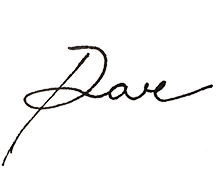If you’re finding these days that you suddenly have a lot of time on your hands for self-reflection, self-inquiry, and contemplation — you know, like, if you’re maybe in a state of social distancing, self-quarantine, or shuttering in place — you might enjoy writing during this time to make the most of your reflections.
By putting pen to paper, you give yourself a chance to remember what you’re experiencing and to learn it more effectively.
Deliberating chronicling, exploring, and clarifying what you’re thinking and feeling is an immensely important tool for mental health, personal wellbeing, and overall happiness in life. For example, studies suggest that journaling for what you’re grateful for is the #1 most reliable tool for increasing your overall satisfaction with life.
If you’re stuck at home with “too much” time to yourself, this may be an ideal opportunity for you to start a new personal journaling practice or a writing habit that can stick with you and create ease, peace of mind, and self-support that lasts long after this strange but necessary era of social distancing eventually ends.
While we all play our part to support the greater good of society, now is an amazing time to start writing, journaling, and reflecting for your optimal health and full wellness of spirit.
Start with these 5 writing prompts to help you build self-reliance during your self-quarantine.
Prompt #1
Describe the last “normal” feeling day that you remember. What happened? What do you miss?
This prompt is a reflection and gratitude exercise. Simply describe the last “normal” feeling day that you remember experiencing — before the coronavirus pandemic kicked off and affected your everyday life as it has.
- What do you remember about that day before social distancing, self-isolation or self-quarantine began? Describe it in as much detail as you can remember.
- Next, ask yourself, what about the normalcy of that day do you miss? Why?
- Go deeper: What has this time done to change or shift your perspective? How has this given you a new sense of gratitude or appreciation for what was “normal” that you might have been taking for granted?
- As a bonus, ask yourself, how you will honor your old routine, or better appreciate your days, or invite the return to normalcy when things do return to normal?
Prompt #2
What do you want to be able to say when you’re asked someday, “What did you do when all of that was happening?”
This is an imaginary exercise in which you “place” yourself in an envisioned future and reverse engineer a discovery of what you should or might try doing at this moment today.
So, imagine someone asking you what you did with your time in quarantine, social distancing, or self-isolation: the time you are experiencing in the present moment, right now.
- What do you want to say you did?
- What you would like to be able to say you experienced, explored, created, sat with, or reflected upon with this time that you have, right now?
- What do you want to say that you retreated into? What book(s) did you open? What journals did you begin?
- Who did you call? Who did you thank? What spirit of generosity did you share, how, and when?
- What curiosity, wonder, or exploration did you finally give yourself to?
Brainstorm a range of ideas out as fully as possible.
And then? You should probably consider doing one or a few of those things!
Try them on. See how they land when and as you explore them.
Make the most of this time that you have, especially so that, someday, you don’t have to respond with, “I just sat there and did nothing.”
You’ve got this.
PS: Don’t worry, we’ll all skip over the lingering dread, sleepless nights, pangs if anxiety, and stress-eating cake with breakfast…
Prompt #3
What moments do you want to remember about this time when you look back at it someday?
This is a different angle on the above prompt about how you want to respond when someone asks you what you did with your time. This prompt, instead, is an invitation for you to reflect with some gratitude and thankfulness and appreciation about the little moments, experiences, or interactions that — as easy as they may be to overlook — may be worthwhile to remember someday when all of this is over.
- What moments — with your kids, your loved ones, your time and space — do you want to remember?
- What moments and experiences may be “silver linings” to this anxious time?
- What interactions are you having that are easy to take for granted, but that may be worth remembering in the near or distant future? An interaction with a delivery person? A gesture of kindness you received? The extra time on the phone with your boo?
What do you want to remember about this time when you look back at it someday?
Prompt #4
What is “boring” you (hollowing out, emptying, or leaving you vacant and unfulfilled)?
Did you know? While we all typically use the word “bored” to describe a state of feeling unstimulated or unentertained, the definition of bored is actually used to describe a state of feeling “hollowed out” or “emptied”, as in, “to have had a hole bored into” you.
That means when we say we’re “bored”, there’s a chance that we’re not only describing a state of unstimulated (as in, “There’s nothing to watch on Netflix,” but actually describing a state of feeling emotionally hollow, empty, unfulfilled, intellectually vacant, avoidant, or disconnected from ourselves or others or meaning or significance.
- During this time of social isolation from others, what are you discovering “bores” you?
- What are you describing as being bored from?
- When you feel bored, what have you just done — that you presumed would entertain, stimulate, or “fill” you up — that actually leaves you feeling empty, unfulfilled?
- Would it be accurate to describe the feeling as being “hollowed out” or “empty” or “unfulfilled”? If so, why?
Consider that the activities you’re choosing and choices you’re making that leave you feeling “bored” may not be the best, healthiest, or most constructive uses of your time and energy.
If every time you finish gaming, Netflix binging, or Instagram scrolling leave you feeling hollow and empty?
You tell me, should you keep doing it so much?
Or, would you rather do what makes you feel full and whole?
Prompt #5
What fills you? What fulfills you? What makes you feel whole?
If you’re feeling particularly bored — or, as we discussed, hollowed out, emptied, vacant, uninspired or unfulfilled from — it stands to reason that a great question to ask yourself would be the opposite!
- What makes you feel full, fulfilled, or whole?
- What people, interactions, and exchanges make you feel more complete and satiated, especially on emotional, intellectual, or spiritual levels?
- Describe something you recently did that made you feel really complete, appreciative, or content with your decision. Was it reading a book, calling a friend, or cooking a new recipe?
- What qualities to that activity or experience would you describe as being responsible for making you feel more fulfilled?
Get as detailed as you can — this exercise translates beyond social distancing and can reveal a lot about what qualities, values, or undercurrents you desire more of from your everyday life and the decisions you make in work, relationship, and beyond.
What fills, fulfills, and makes you feel whole?
What lies beneath the surface of those interactions, opportunities, and activities that you might be able to apply elsewhere to your life — when this time of anxiety and social distance concludes?
I hope you enjoy these prompts for heightened self-reliance.
Leave a comment below with your takeaways and reactions, or to let me know if you’d like more prompts like these (or even different journaling prompts of another sort, vibe or flavor).
I’m all ears and here to support you from afar however I can.
Until then, I’m wishing you and yours full health, wellness, and peace of mind during this strange and stressful time.
Remember: do your part. We’re all in this together.

